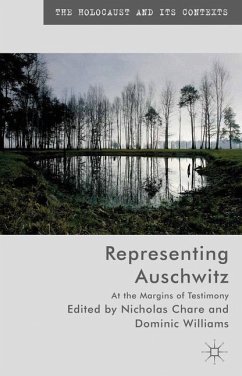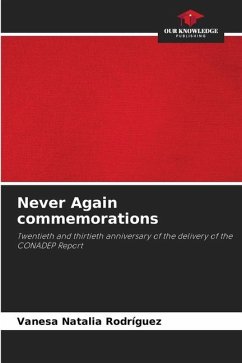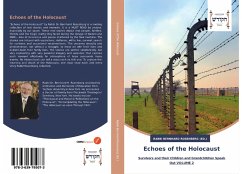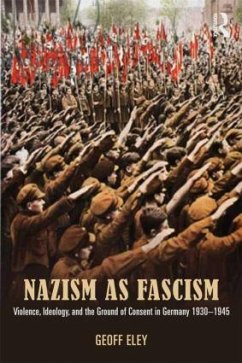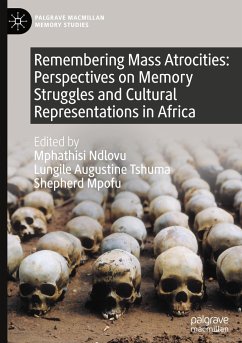
Remembering and forgetting; representing and silencing
Reflections on the uses of memory in History - The case of the Nazi genocide
Versandkostenfrei!
Versandfertig in 6-10 Tagen
33,99 €
inkl. MwSt.

PAYBACK Punkte
17 °P sammeln!
The aim of this paper is to reflect on the uses of memory in history, specifically the memory of the Nazi genocide, the Holocaust. This reflection is made in the search for theoretical and methodological guidelines to help approach memory in the study of the Nazi genocide in History. The first deals with the "representation" of the Nazi genocide and the problems that different notions of "representation" bring to the study of this event; the second part of the work investigates the uses of this memory in terms of constructing the history of the Nazi genocide and its use for political justifica...
The aim of this paper is to reflect on the uses of memory in history, specifically the memory of the Nazi genocide, the Holocaust. This reflection is made in the search for theoretical and methodological guidelines to help approach memory in the study of the Nazi genocide in History. The first deals with the "representation" of the Nazi genocide and the problems that different notions of "representation" bring to the study of this event; the second part of the work investigates the uses of this memory in terms of constructing the history of the Nazi genocide and its use for political justification; the third part reflects on the challenges that an approach to testimonial memory brings to historians researching the Nazi genocide. This reflection takes into account the fact that the Holocaust is a traumatic event that raises questions for the West in general and, consequently, for historical science.




